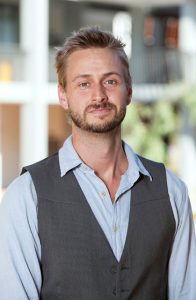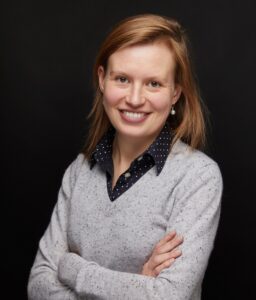Since 2002, TIRF has supported students completing their doctoral research on topics related to the foundation’s priorities. Each year, applicants who have been advanced to candidacy in legitimate PhD or EdD programs are invited to submit proposals for Doctoral Dissertation Grants (DDGs). (By “advanced to candidacy” we mean [a] having completed all required course work, if any, and [b] having had a research plan approved by the candidate’s university committee.) Proposals are reviewed by a TIRF committee of established international researchers. DDGs are provided in the amount of up to US $5,000 per awardee.
Use the tabs above to learn more about the DDG program.
2024 DDG Competition Now Open
The 2024 Doctoral Dissertation Grants competition is now open. The application deadline is Wednesday, May 15, 2024 at 11:59pm Pacific Time (United States & Canada). Award decisions are expected to be made by mid-September 2024 and announced on our website and via our newsletter. The information below should be utilized by individuals who are interested in learning about our DDG competition.
- Download the 2024 DDG call for proposals.
- Download the 2024 DDG application form.
- View the “Creating Successful DDG Proposals” video (use the “Application Mentoring” tab above).
- View the resource videos to help complete the application form (use “Walk-Through Video” tab above).
- Visit our DDG frequently-asked-questions page (use “FAQs” tab above).
- Submit your proposal/letter of support via our Application Submission Area.
We would like to recognize the wonderful support of our partners: Cambridge English (part of the Cambridge University Press & Assessment) and the British Council. The efforts of these two organizations help to make possible this year’s DDG competition.



Doctoral Institution

Doctoral Institution
Honorable Mentionees
Doctoral Institution
Dissertation Title
TIRF Research Topic Investigated
Doctoral Institution
Doctoral Institution
Doctoral Institution
Each year, the highest rated DDG proposal is awarded in the name of the late Russell N. Campbell. Dr. Campbell, a Past President of TESOL, was one of the founding members of the Foundation. Starting in 2023, TIRF began raising funds to establish an endowment to ensure its Russell N. Campbell DDG would be offered in perpetuity. To learn more about this fundraising campaign, please click here. To see a list of individuals who have supported the fund, please visit our “Give” page and scroll down to the “Russell N. Campbell Donors” menu.
About Russ Campbell
Russell N. Campbell (1927-2003) was one of the founding Trustees of TIRF. He completed his PhD in Linguistics at the University of Michigan, and then taught at the University of California Los Angeles (UCLA) for many years, beginning in 1964. He was the first chairperson of the UCLA Doctoral Program in Applied Linguistics and the director of the first TESOL Summer Institute, which was hosted by UCLA in 1979. He was also the founding director of UCLA’s International Institute’s Language Resource Center and directed the UCLA Language Resource Program from 1988 to 2001. He served as the TESOL President from 1971 to 1972.
As former Spanish teacher, Dr. Campbell had a life-long interest in bilingualism. He helped to establish the Culver City Spanish Immersion Program (following the Canadian total immersion model), as well as the Korean-English two-way immersion program in Los Angeles. He later established three English-language training centers in China, which led to early academic exchange programs. He was involved in English language teaching and teacher training programs (some of them through the Peace Corps) in Argentina, Armenia, China, Costa Rica, Egypt, Ethiopia, Iran, Italy, Jordan, Lebanon, Mexico, Nigeria, Peru, Poland, Romania, Thailand, Tunisia, Yugoslavia, and the United States.
The following points are only an overview of eligibility to apply for a DDG. Successful applicants will read the call for proposals and carefully follow the instructions.
Applicants must
- be enrolled in a legitimate doctoral program;
- be advanced to candidacy and have had a research plan approved by a faculty committee at their university;
- write a proposal which is clearly related to one or more of TIRF’s Research Topics;
- follow specific instructions located in the call for proposals; and
- have their research supervisor submit an official letter of support attesting to the applicant’s readiness to complete the doctoral dissertation.
Please note that DDG applicants do not need to be U.S. citizens.
Research Topics
TIRF’s current research topics are located on its website. Click here to learn more. TIRF reserves the right to change its research topics at any time.
Possible Constraints on Awards
Please note that the ability for TIRF to make payments for a grant, prize, or other purpose may be restricted. Although TIRF is an independent foundation, it remains subject to the laws governing the United States of America (where TIRF is registered), including governmental sanctions that are in force and may limit doing business with individuals or organizations in/from certain countries.
This frequently-asked-questions (FAQ) section of our website is designed to help answer some of the most common questions we receive about the DDG competition. Click the links below for information related to the section headings.
I have read the application information and it seems to me that TIRF’s DDGs are offered to students who are about to begin their doctoral research. In my case, I have done the data collection, and I am now working on analyzing my data. Am I too far along in my dissertation process to apply?
- DDG applicants must be “advanced to candidacy.” We realize that “advanced to candidacy” can mean different things at different institutions. We are looking for applicants who are finished with all of their coursework and exams and have advanced to the dissertation stage. Your doctoral supervisor should attest to this fact in his/her letter of support for your application. You may be at the data collection phase, the data analysis phase, or you may be in the initial stages of writing up your results. If you have “advanced to candidacy” at your institution and have not yet defended your dissertation and been granted your degree, you are eligible to apply. Of course, if you were defending your dissertation in the next month, then you would be too far along in the process to apply for TIRF DDG monies.
My dissertation topic is how pre-service teachers help English language learners to learn other subjects in school (that is, not just English). The primary goals of the research include both language and non-language learning. Since my study focuses not only on language learning, I would like to know if my study might be fundable.
- As is the case with any inquiry like this one, there’s no way that we can tell you with absolute certainty that you would be eligible to apply. Use your best judgment given what was written just above. We cannot tell you with certainty whether your study could be considered for funding. In your proposal, you can make a case as to why your study connects to one or more of TIRF’s research priorities. Our external reviewers will ultimately decide whether your study is eligible for funding.
Is it possible to apply for the dissertation grant if you hope to become a PhD candidate after the submission deadline and your advisor writes a letter to the effect?
- If your research supervisor attests (in writing) to the fact that you will be advanced to candidacy before the DDG adjudication results are announced, we will consider the proposal. However, if for some reason you are not advanced to candidacy, you would not be eligible to receive a TIRF DDG even if your proposal had been highly rated by TIRF’s reviewers. You may apply, but unless your topic is directly related to one of TIRF’s research priorities, your proposal is not likely to be rated very highly.
I am a masters-level student completing my degree in TESOL. Can I apply for the grant?
- No, you are ineligible to apply. DDGs are designed for doctoral-level students who are advanced to candidacy.
If my dissertation concerns a language or languages other than English, am I eligible to apply?
- TIRF will consider proposals that propose research on other languages. However, because TIRF’s focus is on English language education, the study proposed would need to explicitly address how the research might have an impact on English, as well as on the language being researched (and on other languages). Applicants will need to do an excellent job of making these connections, in order to be rated highly by TIRF’s external reviewers and receive an award.
I’m currently a fourth-year doctoral student at my university and am planning to take my preliminary examination this fall. Although I haven’t taken the exam yet, I have written a proposal for my pilot study and will conduct the study in April and May of next year. Am I eligible to apply for a Doctoral Dissertation Grant?
- No. DDG applicants must be “advanced to candidacy.” This term can mean different things at different institutions. DDG applicants should be finished with all of their coursework and exams and be at the dissertation stage. Your doctoral supervisor should attest to this fact in his/her letter of support for your application.
My study is about a particular research priority, or maybe even two priorities. Can you please tell me where my study fits with TIRF’s research priorities?
- Unfortunately, we cannot tell you with certainty which research priority (or priorities) you should apply under. Part of the application process is designed for applicants to make connections between their studies and TIRF’s research priorities. It is up to you to make the connections clear and explicit.
I will be defending my dissertation to my faculty committee two weeks after the deadline for submitting the DDG proposal. Can I still apply for a DDG?
- No, in this case, you are ineligible to apply. Our DDG program is designed to grant funding to individuals who need money to help complete the final year of their studies.
Am I eligible to apply for a TIRF DDG if I am completing my doctorate online?
- Yes, you are eligible to apply for a TIRF DDG if you are completing an online doctorate. An individual may apply for a grant regardless of whether his/her program is completed online or face-to-face, so long as the program itself is bonafide and other DDG eligibility criteria are satisfied.
Are part-time doctoral students eligible to apply for a TIRF DDG?
- As long as you are enrolled in a legitimate doctoral program and are advanced to candidacy and you have the support of your doctoral supervisor, your proposal can be considered by TIRF.
How far along in my doctoral process is considered “too far along” when considering whether to apply for a TIRF DDG?
- If you have finished your data collection and data analysis and are in the final stages of writing your dissertation, you are likely ineligible to apply.
I have collected my data and started writing my thesis. Does this mean that I could only apply for funding for the remaining part of my project, or can I also include items in my budget for which I have already paid expenses?
- TIRF will not reimburse applicants for expenses incurred prior to the submission of their proposals. Therefore, you should only include in your budget allowable items that relate to the remaining part of your project.
Would it be acceptable to add childcare costs as necessary to my research?
- No, childcare costs are not an allowable budget item.
I understand that the amount for conference expenses is limited to $2,000. Does it include accommodation cost for attending conferences?
- Yes, the $2,000 limit includes transportation and accommodations. In fact, it includes any costs related to expenses for attending and presenting at conferences, such as conference registration fees, accommodations, and transportation.
Is it possible to use the grant for travel already undertaken for data collection?
- No, you may not include expenses for data collection, including travel, as an expense in your budget if those expenses have been incurred prior to the time of your application for a TIRF DDG.
What if I need more than 40% of the award at the beginning of my study, in order to get started with my data collection?
- The DDG payment schedule consists of three payments, as determined by our Research Advisory Committee. Unfortunately, we cannot make any changes to the payment schedule. We would ask for you to keep in mind that TIRF DDGs are designed to help assist with some of the costs to complete your research. The grants are not designed to cover all of the costs involved with your research or your personal expenses.
Can I have my award money sent to a friend or family member instead?
- Yes, we can work with you to find creative payment solutions. In the past, we have sent checks directly to family and friends at the request of our grantees. We typically have done so only in situations when a grantee is living outside the U.S, and has a family member or friend who can help the funds reach the grantee’s bank account. We can also send a check for direct deposit to an awardee’s bank.
Are the actual funds for awards processed through a university account or through some other means?
- We are quite flexible when it comes to finding creative solutions to deliver DDG awardees’ funds. In the U.S., we typically send checks directly to the grantee. We do not have restricting policies that prevent us from paying awardees directly. We realize in some cases that you may need to work within your university’s policies. If you are awarded a TIRF DDG, we will be happy to work with you and your university to follow whatever policies we must.
What happens if I am not completely finished with my dissertation or have not successfully defended my dissertation by the deadline set for the final reports (typically two years after award date)? Can I get an extension?
- We expect that our grantees will communicate regularly with us about the status of the dissertation process. While we do understand that unexpected events may surface, we do hope that you can finish your study in two years from the time the award was made. Funds allocated to doctoral research projects may not be available after the deadline if those projects are not yet complete.
What is the total amount of funding TIRF will award in one year of its DDG competition?
- The total amount of funding we have varies from year-to-year. TIRF DDGs are awarded for up to $5,000, but in many instances the amount of the award is less than what was requested in the proposal. It is common for DDGs to range from $1,000 to $4,000. For some years, we have been able to support up to 16 applicants at various levels of funding.
How do I submit my application?
- DDG applications can be uploaded by visiting our Application Submission Area. From the drop-down menu there, you will need to select the option which reads “Doctoral Dissertation Grant Applications.” After making this selection, another drop-down menu will appear with a list of our research priorities. Choose the option from the list that matches the TIRF research priority under which you are applying. Then, hit “Browse” to find your application in your computer’s files, select it, and be sure to click “Add Submission.” Please also ensure that your first and last names are in the name of the file you upload and submit.
I made revisions to my application, can I resubmit it?
- No. We can only accept an applicant’s first upload. Once a person has submitted his/her application, no changes can be made to his/her file. Please be sure to proofread your application carefully and make sure it is both correct and complete before you upload it.
What is the process like for communicating amendments to my dissertation plan, if my application is approved?
- Should your study be selected for a DDG award, you would need to notify TIRF immediately by email about any changes to your study. You will also need to note any changes in your acceptance letter.
Do I need to submit two separate applications to be eligible for the TIRF-Cambridge DDG and the TIRF-British Council DDG, or only one application?
- Only one application needs to be submitted. On the first page of the application form you will submit, there is a place for you to indicate whether you are eligible for a TIRF-British Council award.
I will be collecting data in a remote area and won’t have email access at the time proposals are due. Can I submit my proposal just a few days later?
- No. We encourage you to submit your application ahead of the deadline. You may submit your application as soon as the call for proposals is available.
What counts as evidence of “scholarly and professional promise”?
- Evidence of “scholarly and professional promise” should be noted in your CV in the form of publications, conference presentations, and/or experience in the field.
English is not my native language. What if there are problems in my writing style? Can nonnative writers be judged by different criteria?
- No. We expect all individuals to submit high-quality applications. If you have concerns about your writing, you may wish to hire someone to help you edit your prose. You should also make certain to ask your dissertation supervisor to read your application to give you feedback. In fact, on the first page of the DDG application form, we ask applicants to indicate that their supervisors have provided feedback on their proposals.
Can my dissertation be written in a language other than English?
- Yes, DDG applicants’ dissertations may be written in languages other than English. However, DDG proposals, reports to TIRF, and all communications with TIRF must be written in English.
What if I miss the deadline by a few hours, or even a few minutes? Sometimes the power goes out here and I might not be able to get internet access to submit my proposal.
- If you live and work in an area where access to power and the Internet is variable, we strongly encourage you to submit your application early The DDG CFP is posted to our website in December of the prior calendar year. (For example, the 2015 DDG CFP is posted to TIRF’s website in December 2014.) Therefore, planning ahead will help to ensure that you can avoid any issues with submitting your application.
May I co-apply for a TIRF DDG with one or more of my colleagues?
- No. DDG applications must be submitted individually.
My proposal has just a single extra page because I had so much literature to review. Is that OK?
- No. As stated in the DDG Call For Proposals, the literature review in your proposal should be no longer than two pages. Please select the most salient references from your work, and include only those with your application. If you exceed the page limit, you will unfortunately be disqualified.
Are appendices or footnotes allowed in DDG applications?
- No. Appendices and footnotes are not allowed in DDG applications.
What if a proposal is about two research priorities? Mine is about assessment but also about language policy and planning.
- You are welcome to apply under more than one research priority. To do so, you should list on the cover page of your application which priorities you are applying under. In your application, you will want to make explicit connections between the research priorities and the contents of your study.
When are supervisor letters due?
- The supervisor letters are due on the same day the applications are due.
How does my supervisor submit his/her letter of support?
- Supervisor letters can be uploaded by visiting our Application Submission Area. From the drop-down menu there, supervisors need to select the option which reads “Supervisor Letter of Support for DDG Applicants.” Make sure to select the file from your system and then press “Add Submission.” Supervisors should use the following naming convention when uploading their files “DDG_SupervisorLetter_First&LastNameOfApplicant.”
What will happen to my proposal if my supervisor’s letter of recommendation doesn’t arrive in time?
- To be considered for funding, your application file must be complete by the deadline. Your supervisor’s letter is part of your application file. If your file is not complete by the deadline, for whatever reason, we cannot consider your application for funding. Make certain to contact your supervisor early and in a timely manner.
How will I know what to improve if I don’t get feedback from the reviewers?
- You need to talk with the supervisor of your dissertation and the faculty members at your own university about improving your proposal. Remember, your research supervisor needs to read your proposal before you submit it.
TIRF Trustees Dr. MaryAnn Christison and Dr. Anna Krulatz offer guidance to prospective DDG (Doctoral Dissertation Grants) applicants in the video below. TIRF’s Chief Operating Officer, Ryan Damerow, elaborates on DDG-related resources.
Links from the presentation are listed under the video.
British Council Eligibility
https://www.oecd.org/dac/financing-sustainable-development/development-finance-standards/DAC-List-of-ODA-Recipients-for-reporting-2022-23-flows.pdf
Identifying a Gap in Research
https://resources.nu.edu/researchprocess/literaturegap
APA Help
http://owl.english.purdue.edu/owl/resource/560/01/
Curriculum Vitae (CV) Help
https://www.elsevier.com/connect/writing-an-effective-academic-cv
https://grad.illinois.edu/sites/default/files/pdfs/cvsamples.pdf
Research Methods
https://gtu.ge/Agro-Lib/RESEARCH%20METHOD%20COHEN%20ok.pdf
Click here to view the video on TIRF’s website.
Click here to view the video on YouTube.













